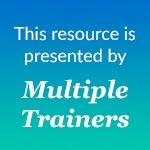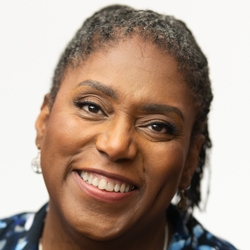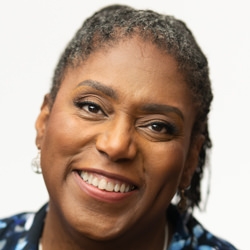
Search Results: socialization
-
-
Listen to this telecourse recording with CNVC Certified Trainer, Alan Seid, to explore what is meant by social change in the context of NVC, and learn how Nonviolent Communication can be a powerful ally for creating social change.
-
What could be, more often than not, overlooked when we think about or represent NVC or Marshall Rosenberg's work? This article busts some commonly held ideas and approaches to NVC. It challenges us to widen the lens of what it really means to be "life-serving", or speaking and hearing the "language of life". And it also speaks to how thinking can deepen feeling and relatedness...
-
Want things to change in your community, but feel frustrated or don’t know what to do? Miki’s intriguing overview of how to apply the principles of NVC to social change movements may have the exact blend of inspiration and ideas you’re seeking!
-
CNVC Certified Trainers Catherine Cadden, Jesse Wiens and Miki Kashtan join NVC Academy co-founder Mark Schultz in a discussion of Nonviolent Communication and social change in the context of the Occupy Movement.
-
- Understand the essential relationship between personal healing and social change — and how to communicate it to others.
- Increase your compassion capacity for different ways of being in the world.
- Get clarity about the difference between equity and equality — and how to generate equitable processes in your communities and networks.
- Obtain tools to explore the various factors that contribute to your understanding of power and privilege — including your own.
-
Certified CNVC Trainer Roxy Manning, Phd, shares three steps on how to reflect on what needs are being served when deciding to implement a strategy.
-
By focusing on NVC process and practice without factoring in the interdependent, systemic dimension we unwittingly diminish the power of NVC. We reinforce the dominant paradigm, rather than challenging it -- making NVC one more tool for compliance. NVC principles can turn against its own purpose in cruel ways. NVC could also empower social change. We'll need our attention on this matter if we are to contribute to transforming the oppression we face and our collective march towards extinction.
-
We can't alone (nor with lone communities) transform the hidden structures of violence and domination. Dialogue alone isn't disruptive enough. We can easily be in dialogue with Trump supporters while the planet burns up, millions are still hungry, and we go extinct. NVC seriously risks reinforcing vast inequities and abuses if we're not radically engaging systemic constraints, and impacts of our choices that go beyond our immediate circle. Read on for ways to leverage NVC practices to expand true social change.
-
What would it be like if we raised children who already knew how to be inclusive, who already understood climate change, and who knew that they had a role in keeping our planet liveable? Roxy Manning believes that how we parent can support the next generation in showing up with an innate connection to Social Change.
-
In this moving reflection, Rachelle Lamb honors Marshall Rosenberg’s true vision for Nonviolent Communication—not just as a tool for personal transformation, but as a catalyst for deep social change. She reminds us that inner work alone is not enough in a world facing ecological collapse, rising suicide rates, and widespread displacement.
-
Ronnie Hausheer, an NVC facilitator who volunteers her time for OccupyVoice.info joins NVC Academy co-founder Mark Schultz in a discussion of her work sharing empathy, NVC training and mediation with members of the Occupy Movement.
-
-
-
-
-
-
During the holiday season we may find ourselves taking responsibility for other's feelings, which can lead to guilt, shame, depression, and resentment. These feelings are exacerbated by the habitual pattern we call the "Vortex of Submission" (being hooked by a sense of duty and obligation). Read on for ways to recognize and break the pattern.
-
Society gives us short-sighted explanations about human nature, life and what’s (un)changeable. The coronavirus pandemic is disrupting that explanation. Our current social order upholds impoverishment, police brutality, and is leading us towards our extinction. Change begins with people mobilizing resources towards a vision that holds systemic care for all, plus engages shared risk and collective action towards that vision.
-
We can see throughout many examples in history that when we look for "who" is at fault, and thereby seek social change through shaming that person (or that group), it tends to lead to disastrous long term consequences. Even if it works in the short term. Instead, if we want to end cycles of violence we can seek to understand systemic causes and context of individuals' behaviour. And from there, look for solutions that stem from this understanding.












